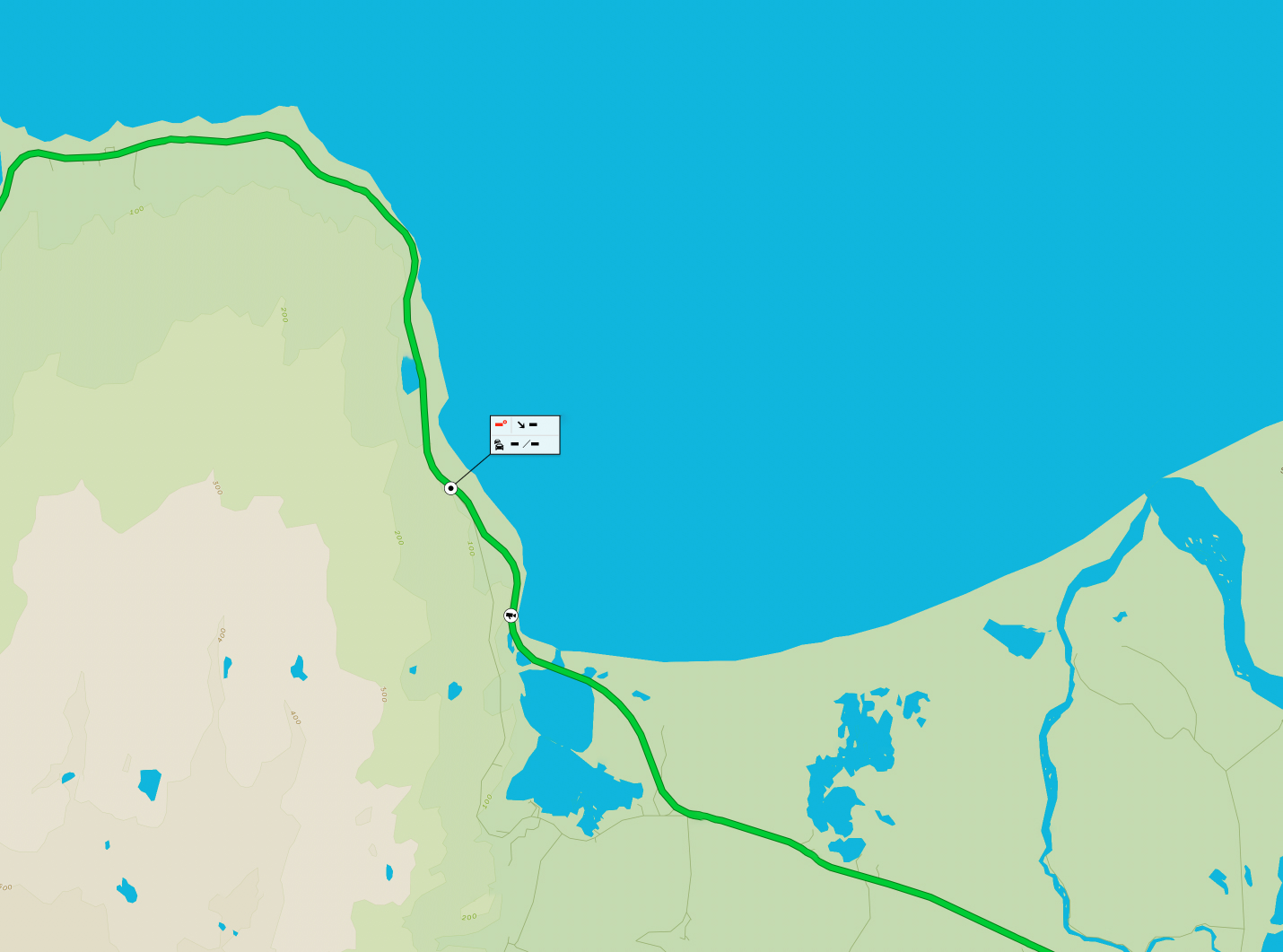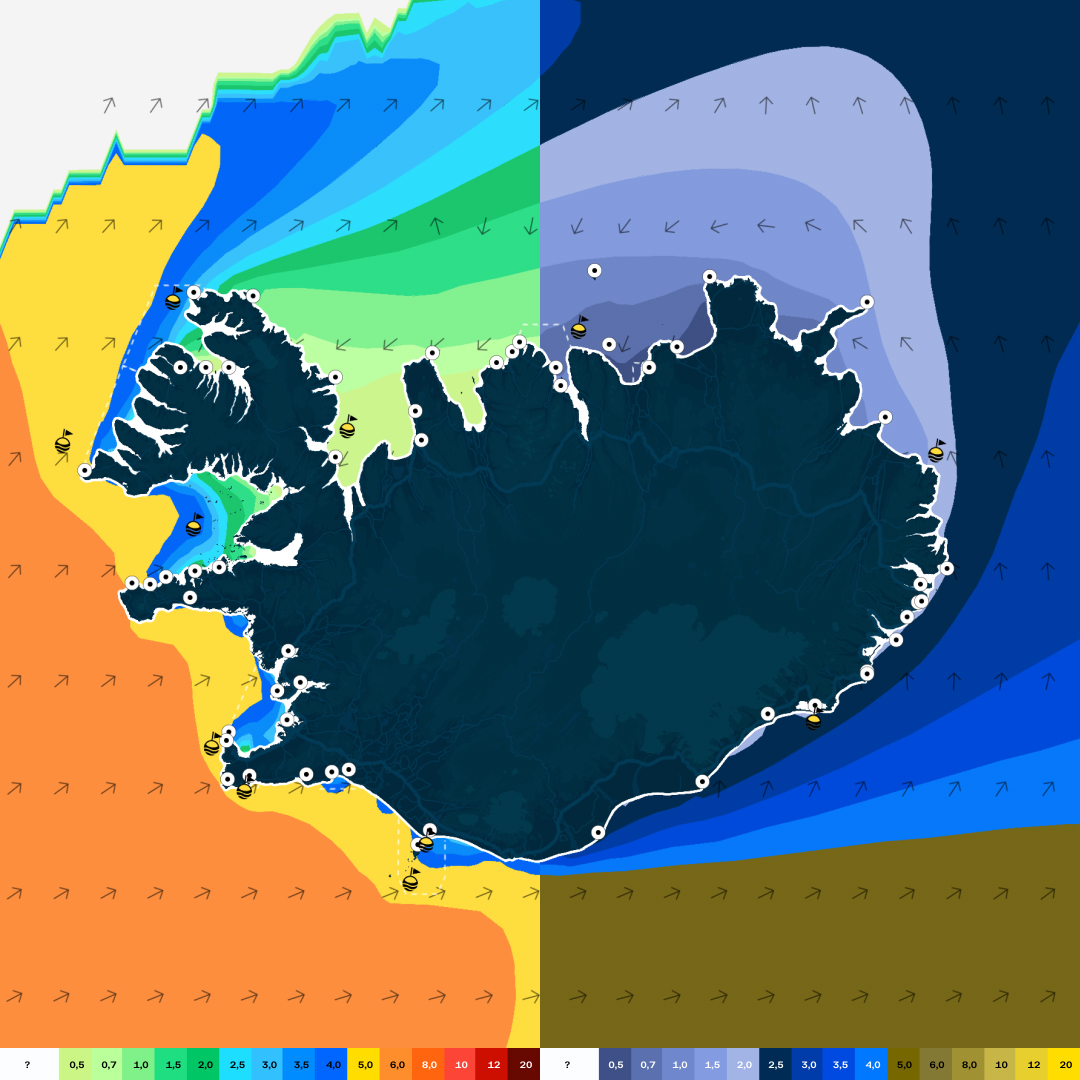Innovation and Technology
Innovation, research, and development constitute an important part of the IRCA’s operations. Annually, funds are granted for research projects, for the most part financed by designated experimental funds, which, according to the Road Act, is to be 1.5% of the institution’s assigned revenue, every year. Calls to apply for grants going toward research and development projects are issued at the beginning of each calendar year.

Applications for grants for the year 2025
The call for submissions of grant proposals to the IRCA’s research fund for the 2025 calendar year concluded on 28 February 2025. Applicants received an e-mail confirming that their application was received. When said application was processed (accepted or denied) another e-mail was sent, both to the e-mail of the applicant themselves, and their project manager.
Information on the processing of applications will be published on applicants’ My Pages sites when it becomes available. Notifications will be sent to the e-mails of applicants and the project managers specified in the applications.
Enquiries can be sent by e-mail to Ólafur Sveinn Haraldsson, the IRCA’s Research Department Director, olafur.s.haraldsson@vegagerdin.is.
Research and development
The IRCA participates in diverse, varied collaboration with foreign parties and agencies in the field of research and development. In addition, the employees of the IRCA participate in various conferences and forums abroad, through which they obtain knowledge that they then communicate further along, both within the institute and outside it. Furthermore, Icelandic perspectives on research are presented abroad through articles published in international journals.
Further information about the research and development undertaken at the IRCA’s behest is provided by Guðmundur Valur Guðmundsson, Managing Director of Development and Ólafur Sveinn Haraldsson, Director of Research, as well as through email: rannsoknir@vegagerdin.is.
The Research Policy of IRCA
The IRCA’s research fund, in its work, takes account of the institution’s role, goals, and vision of the future. Systematic analysis is performed on the need for research and research projects in any given field with subsequent prioritisation for allocations of funds follows, wherein emphasis is put on research efficiency.
Focus is placed on practical research and development, as well as participation in basic research relevant to the institution’s operations.
The goals of the research fund are to:
- Initiate research and development that enhances the IRCA’s ability to carry out its societal role
- Gather new knowledge in order to implement it into the IRCA’s operations
- Promote cooperation between the parties that are responsible for — and conduct research pertaining to — the IRCA’s operations
- Promote new talent within disciplines connected to the IRCA’s operations by collaborating with university institutions
- Present research and its conclusions
Foreign collaboration
By participating in international collaboration in the field of research and development, the IRCA seeks to, among other things, gather knowledge and experience from outside parties, keep track of developments with intention to implement into Icelandic society, promote our own knowledge on the world stage, and, in collaboration with the Icelandic Research Fund (Rannís,) raise capital from EU funds to be used for research operations.
The IRCA participates in the following foreign collaborative efforts in the field of research and development:
NVF (Nordisk Vejforum – The Nordic Road Association)
NVF is the international association which the IRCA has the closest connection to. Most of the NVF’s work occurs through committee, with the goal of promoting collaboration and the exchange of information between Nordic-based professionals in the field of transport. From 2016-2020, 10 committees were in operation, with Iceland serving as an active participant in almost all of them. Committees frequently change in between each four-year term; however, there are often specialised committees in fields such as bridges, tunnels, design, road technology, maintenance and service, and traffic safety. Iceland is a participant in all of these committees, and furthermore operates Icelandic versions of these committees alongside international participation. Finland currently directs the NVF through the 2024-2028 term, after which Iceland will direct the association for the second time, concluding the term with a large transport conference, ViaNordica2032, to be held in Iceland.
NordFoU (Co-operation between the national Nordic road and transport administrations)
In December of 2004, an agreement was signed between the Road Administrations in Iceland, Denmark, Norway, Sweden, and Finland (the Faroe Islands joined in 2014) with an extension for the agreement signed in November of 2023. The agreement involves that the participating countries collaborate on chosen research projects, financing them through their respective funds. The projects to be focused on are chosen by a designated governing board, consisting of the research directors of each respective institution. Two or more countries can undertake individual projects, and the decision to participate is made by each institution individually. Prior to each project, an agreement is reached, where the project description, project group, and project manager, financial obligations and more, are specified. Projects can be undertaken both within and outside of the partnered institutions. Results are then made available for each nation, irrespective of participation.
CEDR (Conference of European Directors of Roads)
CEDR is an association of European Road Administrations. Its goal is to promote further developments in road transport, build connections, undertake mutual challenges, as well as taking part in development — within the EU and in Europe in general — which broadly concerns road development and the transportation system. The IRCA was among the founding entities of CEDR in 2003 (when two associations; Western European Road Directors (WERD) and Deputy European Road Directors (DERD) were merged.) Iceland served in the association’s leadership role in 2006. Annually, the association formulates a near-future plan of operation for a three-year term.
PIARC (World Road Association)
The IRCA is a member of this international association, which could be classified as the mother association of NVF, being structured in a similar way. Primarily, the role of PIARC is to communicate knowledge regarding roads and road transport on a global scale.
PIANC (The World Association for Waterborne Transport Infrastructure)
The goal of this organisation is to create a foundation in service of gathering expert knowledge regarding economical, dependable, and durable structures considered necessary to meet the growth of maritime transport. The IRCA participates in this association through participation in NORDPianc, the collaboration of the Nordic countries within PIANC.
NR&TR (Nordic Road & Transport Research)
NR&TR is a Nordic research journal, published in English, meant to promote road and transportation research on a global scale. The IRCA has a representative on the editorial team, and participates in the journal’s publication through coverage of Icelandic transport research.
ROADEX
The ROADEX project is a digital collaborative platform for the road administrations of Northern Europe, with the goal of sharing information on roads and road research between participating countries. The project is partially funded by the EU, under the Northern Periphery Programme (NPP) INTERREG IIIB.
Research projects
According to the Road Act, in effect since 1 January 2008, 1.5% of the IRCA’s assigned revenue is to be used for research and experiments in road building, to be managed by the IRCA.
The IRCA’s head of research oversees the field, whilst the institution’s CEO appoints an advisory board to consult on funding for research projects, as well as advising on the arrangement of research.
General allotment from the fund takes place early each year, whilst applications for funding can be submitted at other times. Whilst a large portion of the fund goes to projects originating within the IRCA, a greater emphasis is now being placed on financing projects that originate and/or are carried through elsewhere, such as within universities, in the private sectors, and even by individuals. The IRCA has also frequently allotted funds to international projects.
In recent years, there has been a significant increase in the number of applications, prompting the IRCA to seek further measures to better utilize its limited financial resources in service of research projects.
Geology
In preparation for road construction, rather extensive geological research is often required. It is the role of the IRCA’s geology department to work on strategic planning, organisation, and the execution of said research. This research particularly relates to mining research, research on materials, as well as soil and bedrock surveys for environmental impact assessments and contract documents for road and bridge construction, as well as preparation for tunnel construction. In service of these goals, the IRCA operates a research laboratory where testing of minerals commonly used for road construction is carried out.
The IRCA has gathered information on and mapped the country’s mines, both those which have previously been used by the IRCA, as well as mines owned by other parties. Following this work the IRCA has launched an initiative for the clean-up of abandoned mine sites which the institution is responsible for. This is in accordance with provisions of the Nature Conservation Act, which state that abandoned mine sites are not to be left unattended for longer than 3 years.
The IRCA operates a data bank, wherein the results of relevant mineral research conducted in relation to road construction are stored.
Guidelines on the usage of blasted rock in road construction can be found in the paper on material quality in the database (only available in Icelandic.)


















